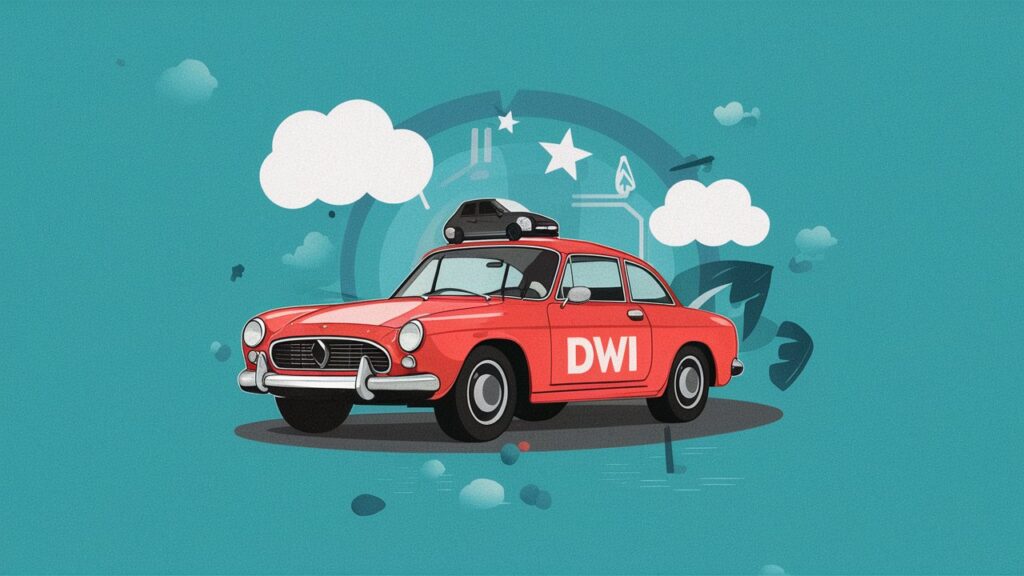Driving While Intoxicated (DWI) is a serious offense that can lead to severe consequences, including increased car insurance premiums. If you have a DWI on your record, you’re likely facing higher rates and limited options when it comes to finding affordable insurance.
However, there are strategies and steps you can take to mitigate these costs and secure cheaper DWI car insurance. This comprehensive guide will walk you through everything you need to know to reduce your insurance premiums after a DWI conviction.
Introduction
A DWI conviction can be life-altering, impacting not only your freedom and reputation but also your financial stability. Among the significant financial burdens is the inevitable spike in car insurance premiums. Insurers view drivers with a DWI as high-risk, leading to much higher rates or even policy cancellations.

Despite this, there are ways to manage and lower these costs. By understanding how insurance companies assess risk, exploring different insurance options, and taking proactive measures to demonstrate responsible behavior, you can significantly reduce your car insurance premiums even with a DWI on your record.
Understanding the Impact of a DWI on Car Insurance
Before diving into strategies for lowering your premiums, it’s essential to understand why a DWI has such a profound impact on car insurance costs. Insurance companies base their rates on the perceived risk a driver presents. A DWI conviction suggests a higher likelihood of future claims, prompting insurers to increase premiums to cover this increased risk. The exact impact on your insurance costs can vary based on factors such as:
- The severity of the Offense
A higher blood alcohol content (BAC) level at the time of the arrest can lead to more severe penalties and greater insurance rate increases.
- State Laws
Insurance regulations and penalties for DWI offenses differ by state, affecting how much your premiums will rise.
- Insurance Company Policies
Different insurers have varying policies for handling high-risk drivers, leading to different premium increases.
- Driving History
A history of safe driving prior to the DWI can help mitigate some of the premium increases, while a poor driving record will exacerbate them.
Understanding these factors can help you gauge the impact of your DWI on insurance premiums and guide you in taking the right steps to reduce costs.
Steps to Getting Cheaper DWI Car Insurance
1. Shop Around for Quotes
One of the most effective ways to find cheaper car insurance after a DWI is to shop around and compare quotes from different insurers. Each insurance company uses its own formula to calculate premiums, and some may be more lenient toward drivers with a DWI than others. When comparing quotes, make sure to provide the same information to each insurer to get accurate comparisons. Online comparison tools can make this process easier by allowing you to see multiple quotes at once.
2. Consider High-Risk Insurance Providers
There are insurance companies that specialize in providing coverage for high-risk drivers, including those with a DWI on their record. These companies understand the unique needs of high-risk drivers and may offer more competitive rates than standard insurers. While premiums may still be higher than average, they are often more affordable than what you would find with traditional insurance companies.

3. Take a Defensive Driving Course
Many states offer defensive driving courses specifically designed for individuals with traffic violations, including DWI offenses. Completing such a course can demonstrate to insurers that you are taking steps to become a safer driver. In some cases, insurance companies may offer discounts to drivers who complete these courses, which can help offset the increased premiums due to a DWI.
4. Install Safety Features in Your Vehicle
Insurance companies often offer discounts for vehicles equipped with certain safety features, such as anti-lock brakes, airbags, and electronic stability control. Additionally, installing an ignition interlock device, which prevents the car from starting if the driver has been drinking, can show insurers that you are serious about preventing future offenses. These safety features can lead to lower insurance premiums.
5. Improve Your Credit Score
In many states, insurance companies use credit scores as part of their risk assessment process. A higher credit score can indicate financial responsibility, which insurers may associate with lower risk. If your credit score is low, take steps to improve it by paying bills on time, reducing debt, and correcting any errors on your credit report. A better credit score can help lower your insurance premiums.
6. Increase Your Deductible
Raising your deductible—the amount you pay out of pocket before insurance kicks in—can lower your monthly premiums. While this means you’ll pay more in the event of a claim, it can make your insurance more affordable on a monthly basis. Consider your financial situation and ability to cover a higher deductible before making this decision.
7. Bundle Insurance Policies
Many insurance companies offer discounts to customers who bundle multiple policies, such as home and auto insurance. If you already have homeowners or renters insurance, check with your provider to see if they offer a discount for bundling it with your car insurance. This can result in significant savings.
8. Maintain Continuous Coverage
Gaps in your insurance coverage can signal higher risk to insurers, leading to higher premiums. Even if you switch insurance companies, ensure that there is no lapse in coverage. Maintaining continuous insurance demonstrates responsibility and can help keep your premiums lower.
Long-Term Strategies for Lowering DWI Car Insurance Premiums
While the above steps can provide immediate relief, adopting long-term strategies can further reduce your insurance costs over time.
1. Maintain a Clean Driving Record
The best way to lower your insurance premiums after a DWI is to maintain a clean driving record going forward. Avoid any additional traffic violations or accidents, as these can further increase your rates. Over time, a history of safe driving can help offset the impact of a DWI on your insurance costs.
2. Seek Expungement of the DWI Record
In some states, it may be possible to have your DWI record expunged or sealed after a certain period of time and under specific conditions. An expungement removes the DWI from your public driving record, which can help lower your insurance premiums. Consult with a legal professional to understand if you are eligible for expungement and the process involved.
3. Work with an Insurance Agent
An experienced insurance agent can help you navigate the complexities of finding affordable car insurance with a DWI. They can provide personalized advice, shop around on your behalf, and help you understand which discounts and coverage options are available to you. Working with an agent can save you time and help you find the best possible rates.

4. Consider Usage-Based Insurance
Usage-based insurance (UBI) programs, also known as pay-as-you-drive or pay-per-mile insurance, can be a good option for drivers with a DWI. These programs use telematics devices to monitor your driving behavior and adjust your premiums based on how safely you drive. If you can demonstrate safe driving habits, UBI can lead to lower premiums.
The Role of SR-22 Insurance
After a DWI conviction, many states require drivers to obtain an SR-22 certificate, also known as a Certificate of Financial Responsibility. This document is filed by your insurance company with the state to prove that you have the minimum required insurance coverage. While SR-22 insurance is not a separate type of insurance, it does indicate to insurers that you are a high-risk driver, which can lead to higher premiums.
How to Obtain SR-22 Insurance
- Contact Your Insurance Company
Inform your insurance provider that you need an SR-22 certificate. They will file it with the state on your behalf. Be prepared for higher premiums as a result.
- Shop Around
If your current insurer does not offer SR-22 filing, or if their rates are too high, shop around for other providers who specialize in high-risk insurance.
- Maintain Coverage
Keep your SR-22 insurance active for the required period, which varies by state but is typically three years. Any lapse in coverage can result in the suspension of your driving privileges.
Conclusion
A DWI conviction undoubtedly complicates the process of finding affordable car insurance, but it is not an insurmountable challenge. By understanding the factors that affect your premiums and taking proactive steps to demonstrate responsible behavior, you can significantly reduce your insurance costs. Shopping around for quotes, considering high-risk insurance providers, taking defensive driving courses, and improving your credit score are just a few of the strategies that can help. Additionally, maintaining a clean driving record, seeking expungement of your DWI record, and exploring usage-based insurance can provide long-term benefits.
Remember, while a DWI conviction can have lasting effects, it does not define you as a driver. With diligence and persistence, you can navigate the challenges and secure cheaper car insurance. Use this guide as a roadmap to take control of your insurance costs and move forward with confidence.
For more details please visit our home page: Click Here

